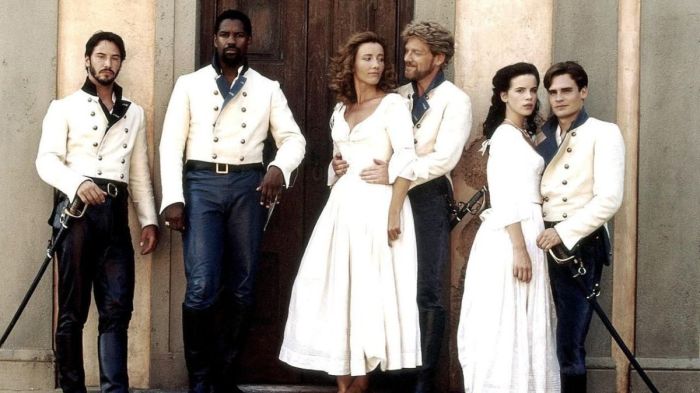Hero monologue much ado about nothing – Benedick’s Monologue: A Transformative Journey in Much Ado About Nothing invites readers to delve into the intricacies of one of Shakespeare’s most iconic speeches, exploring its context, significance, and impact on the character and the play as a whole.
This insightful analysis unravels the literary devices and techniques employed by Shakespeare to craft a monologue that not only reveals Benedick’s inner turmoil but also serves as a catalyst for his profound transformation.
Hero’s Monologue: An Overview
A hero’s monologue is a powerful and revealing speech delivered by a protagonist in a play. It provides insights into the character’s inner thoughts, motivations, and struggles, and serves as a pivotal moment in the plot’s development.
Examples of famous hero monologues from other Shakespearean works include:
- Hamlet’s “To be or not to be” soliloquy ( Hamlet)
- Macbeth’s “Tomorrow, and tomorrow, and tomorrow” soliloquy ( Macbeth)
- Romeo’s “But soft! What light through yonder window breaks?” soliloquy ( Romeo and Juliet)
Benedick’s Monologue: Context and Significance

Benedick’s monologue occurs in Act II, Scene III of Much Ado About Nothing. Benedick, a witty and cynical bachelor, has been tricked into overhearing a conversation in which Beatrice, his love interest, expresses her affection for him. Overjoyed and bewildered, Benedick delivers a passionate and revealing monologue in which he confesses his own love for Beatrice.
This monologue is significant because it marks a turning point in Benedick’s character development. It reveals his vulnerability and his capacity for deep emotion, contradicting his previous facade of indifference and disdain towards love.
Benedick’s Characterization

Before his monologue:Benedick is portrayed as a cynical and witty bachelor who scoffs at the idea of marriage and professes to be immune to love.
After his monologue:Benedick’s monologue reveals a more complex and vulnerable side to his character. He admits to being deeply in love with Beatrice and expresses a willingness to abandon his previous skepticism towards love.
Literary Devices and Techniques: Hero Monologue Much Ado About Nothing
Benedick’s monologue employs several literary devices and techniques to convey his emotional turmoil and the significance of his revelation:
- Rhetorical questions:Benedick uses rhetorical questions to emphasize his disbelief and astonishment at his own feelings.
- Antithesis:Benedick contrasts his previous cynicism with his newfound love for Beatrice, highlighting the dramatic shift in his perspective.
- Metaphor:Benedick compares his love for Beatrice to a “thorn in his foot,” suggesting that while it may cause him pain, it is also a source of great joy.
Themes and Motifs
Benedick’s monologue explores several themes and motifs present throughout Much Ado About Nothing:
- The power of love:Benedick’s monologue demonstrates the transformative power of love and its ability to change even the most cynical of hearts.
- The nature of deception:The monologue is preceded by a deception that leads to Benedick’s revelation, highlighting the complex and often paradoxical role of deception in human relationships.
- The importance of self-knowledge:Benedick’s monologue reveals his own capacity for self-deception and the importance of confronting one’s true feelings.
Comparison to Other Monologues
Benedick’s monologue shares similarities with other hero monologues in Shakespeare’s works, such as:
- Hamlet’s “To be or not to be” soliloquy:Both monologues explore the protagonist’s inner conflict and grapple with existential questions.
- Macbeth’s “Tomorrow, and tomorrow, and tomorrow” soliloquy:Both monologues reveal the protagonist’s disillusionment and despair in the face of life’s challenges.
However, Benedick’s monologue is unique in its combination of wit, vulnerability, and self-awareness, setting it apart from other hero monologues in Shakespeare’s canon.
Performance Considerations

Actors performing Benedick’s monologue face several challenges and opportunities:
- Conveying the character’s emotional turmoil:The actor must effectively convey Benedick’s initial disbelief, astonishment, and eventual joy.
- Balancing wit and vulnerability:The actor must strike a balance between Benedick’s witty and cynical persona and his newfound vulnerability.
- Finding the right pace and tone:The monologue requires a gradual build-up of emotion, with the actor carefully controlling the pace and tone to convey the character’s journey.
FAQ Compilation
What is the significance of Benedick’s monologue in Much Ado About Nothing?
Benedick’s monologue is a turning point in the play, revealing his true feelings for Beatrice and setting in motion the resolution of their conflict.
How does Benedick’s character change after his monologue?
After his monologue, Benedick undergoes a significant transformation, moving from a cynical and aloof bachelor to a man who is willing to embrace love and vulnerability.